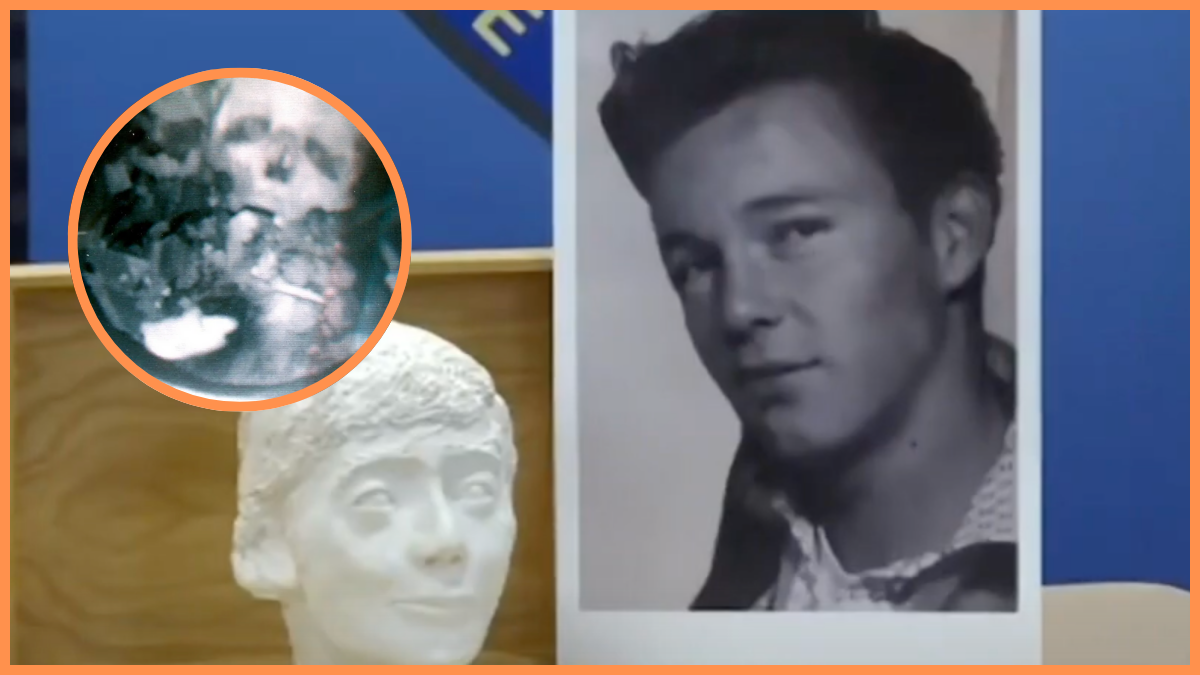In 1989, the owners of the Good ’n’ Loud music store in Madison, Wisconsin were alarmed by something they found in a pipe connecting the building’s boiler to the chimney: A human skull. Other human bones were found inside the chimney, but for years, the remains could not be identified.
Over time, the skeleton discovered inside the music store chimney became known as “Chimney Doe,” or the “Dane County Doe.” It was determined early on the person was a white male and likely between the ages of 18 and 35 when he died. Police found “feminine clothing” along with the body and an iron cross necklace, according to Inside Edition. And whoever it was, they could have died anywhere from two months to two years before the bones were found, The New York Times reported.
Otherwise, the person’s pelvis was fractured, and investigators determined the person likely didn’t end up in the chimney on his own. There were few other leads as to who the person was, the Good ‘n’ Loud building has since been torn down, and the “Chimney Doe” case went cold, ABC News reported.
Years later, in 2018, however, Wisconsin Detective Lindsey Ludden referred the cold case to the DNA Doe Project, hoping that advances in DNA genealogy using strands of hair found at the scene might finally provide some answers.
Ronnie Joe Kirk is “Chimney Doe”
35 years after the bones were found, Madison Police Chief Shon Barnes announced that through genetic genealogy it was determined that “Chimney Doe” had a name: Ronnie Joe Kirk. But although “Chimney Doe” was identified, questions remain about how Kirk died, as well as when and how his bones ended up in the music store chimney.
Born in 1942, Kirk was from Tulsa, Oklahoma, adopted, and last had contact with his family in 1970. After that, he disappeared, although no missing person report was ever filed. He was married twice, and divorced his second wife shortly before he vanished. Kirk also had three children, now in their 50s, who didn’t know each other until Kirk was identified. Police provided little further information about his relatives when “Chimney Doe”‘s real name was announced.
“Someone will remember him,” Chief Barnes said of the news and the lingering questions about the case, “and we’ll do everything that we can to try to trace down if he worked here, if he lived here or if he was just passing through or going somewhere else. We don’t know.”
Could it have been gender-based violence?
The fact that a paisley dress and pointed heels were also found along with Ronnie Joe Kirk’s remains raises the possibility that Kirk’s potential murder was gender-based violence. For this reason, the Trans Doe Task Force, which investigates unsolved L.G.B.T.Q or gender-based violence, is now involved in the investigation. Available evidence says Kirk identified as male, according to Detective Ludden, “but I know that sometimes people hide aspects of their life from friends and family,” Ludden said. Dr. Anthony Redgrave, of the Trans Doe Task Force, added, “There is plenty of circumstantial evidence of gender-based violence, but plenty of question marks, too.”
